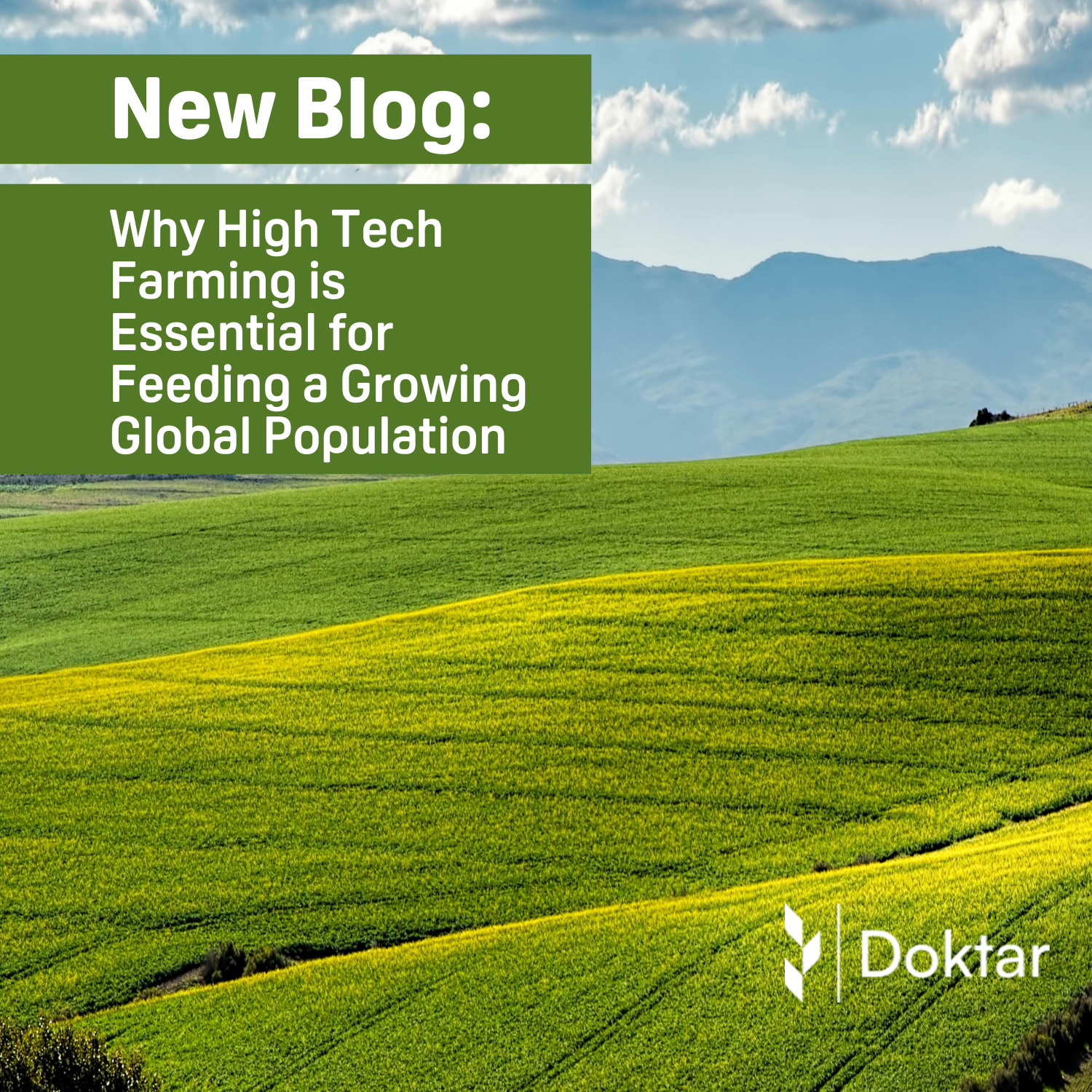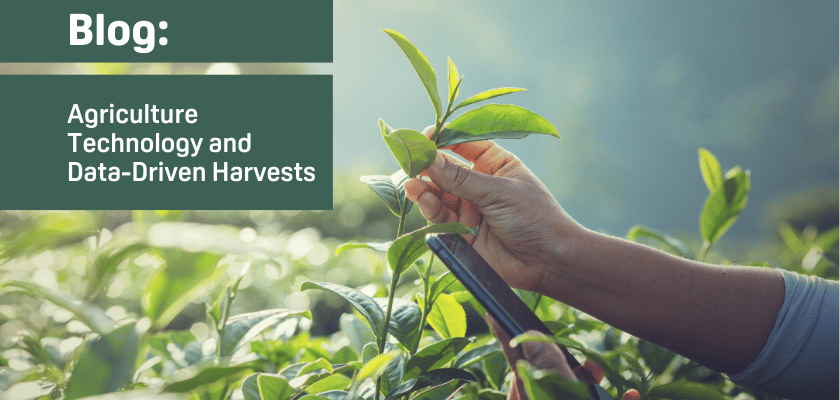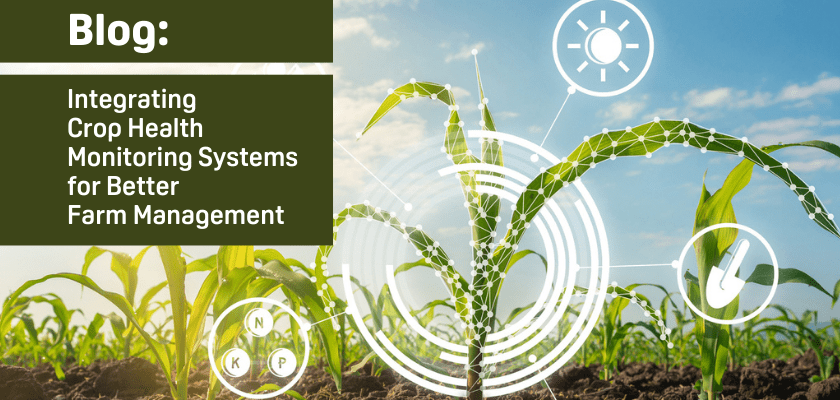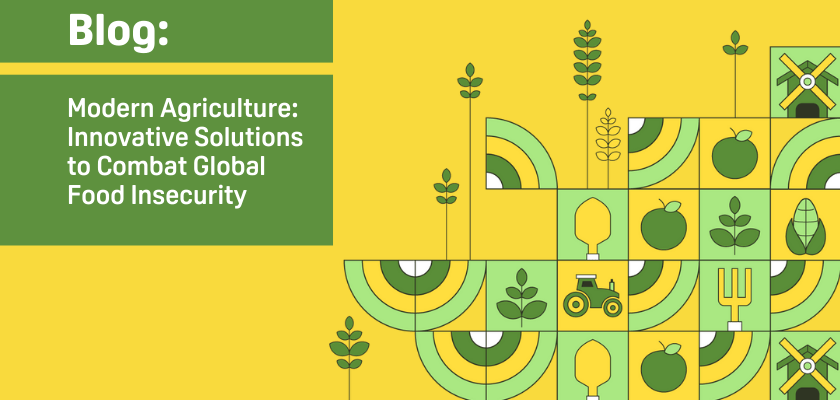

Why High-Tech Farming is Essential for Feeding a Growing Global Population
High-tech farming combines AI, IoT, and precision agriculture to boost crop yields sustainably. It optimizes resource use, minimizes environmental impact, and supports food security. With tools like Doktar’s Orbit, Filiz, and CropMap, farmers can make data-driven decisions that enhance productivity and protect future agricultural resources.
Published on 06 November 2024
Why High-Tech Farming is Essential for Feeding a Growing Global Population
The global demand for food is expected to increase by as much as 70% by 2050 (1), driven by rapid population growth and shifting dietary preferences. In the face of these challenges, high-tech farming emerges as a solution, enabling farmers to produce more food on the same land and use resources more efficiently. By integrating technology into agriculture, high-tech farming can help achieve food security without compromising the health of our ecosystems, making it essential for the future of food production (2).
What is High-Tech Farming?
High-tech farming involves using innovative tools and practices to optimize agricultural processes. This includes precision agriculture, regenerative agriculture, and high-tech precision farming, among other methods, to improve efficiency, reduce environmental impact, and produce higher yields. By leveraging data-driven insights, artificial intelligence, and IoT devices, high-tech farming turns traditional agriculture into a more predictable and manageable industry.
High-tech farming is crucial for addressing today's food security needs and is pivotal in preserving resources for future generations. As soils worldwide face the consequences of over-farming, erosion, and nutrient depletion, high-tech farming offers methods to maintain and even improve soil health. Tools such as Doktar's SoilScanner and precision farming technologies enable farmers to monitor soil conditions in real time, ensuring that nutrients are replenished only as needed and that fertilizers are applied most effectively. This precision reduces nutrient runoff and promotes a regenerative approach to agriculture, helping to restore soil structure and microbial health over time. By investing in high-tech farming practices now, we create a legacy of fertile land and sustainable agricultural systems that future generations can rely on for food production.
Doktar’s High-Tech Solutions for Modern Farming
Doktar is at the forefront of agricultural innovation, offering a suite of products and services that harness the power of AI and IoT to empower farmers. Here's how Doktar's high-tech solutions contribute to sustainable agriculture and food security:
1. Precision Farming with Orbit
Orbit, Doktar's field scouting app, enables precision farming using satellite-based remote sensing for crop monitoring. It identifies problematic field zones, offering early detection of nutrition deficiencies, crop damage, and irrigation issues. This approach helps farmers make informed decisions on input usage, cutting costs while maximizing yield. Orbit's Variable Rate Application (VRA) tool is particularly beneficial, as it segments fields into productivity zones for targeted input applications.
2. Filiz: Monitoring and Managing Soil and Weather Conditions
The Filiz IoT Sensor Station provides real-time soil and air condition data essential for crop health and irrigation management. By tracking air temperature, humidity, soil moisture, and even disease risks, Filiz helps farmers proactively tailor their strategies to local environmental conditions. This proactive approach minimizes excessive fertilization and water usage, is essential for sustainable agriculture, and provides security in farming operations.
3. PestTrap for Targeted Pest Management
Pest management is another critical area where high-tech farming shines. Doktar's PestTrap detects pests in real-time, leveraging AI-powered image recognition to accurately identify pest types and population densities. Farmers receive alerts when pest levels reach thresholds, allowing them to take timely action and reduce crop losses. By minimizing pesticide usage and targeting only affected areas, PestTrap supports both crop health and environmental sustainability.
4. SoilScanner for Rapid Soil Analysis
Doktar's SoilScanner provides instant, on-site soil analysis, a crucial tool for sustainable agriculture. It helps farmers understand nutrient levels and determine optimal fertilization needs, enabling them to take targeted action across different parts of their fields, reducing waste and maximizing yields.
5. CropMap: Precision Insights for Market Intelligence
CropMap goes beyond the field, transforming agricultural data into actionable market insights. With a robust crop type and field boundary detection system, CropMap provides accurate information on production volumes, which helps organizations optimize operations and manage costs. With a 98% accuracy rate, CropMap is an invaluable tool for businesses aiming to predict harvest volumes and assess market needs accurately, instilling confidence in the precision of high-tech farming.

Precision Agriculture: A Step Towards Regenerative Agriculture
Precision agriculture optimizes input use and encourages practices that promote soil regeneration and biodiversity, critical components of regenerative agriculture (3). By applying resources precisely where and when needed, technologies like those from Doktar reduce the strain on ecosystems, helping preserve soil integrity, enhance carbon sequestration, and support a diverse range of plant and microbial life within agricultural fields.
Precision agriculture fosters long-term soil health by reducing nutrient leaching and minimizing the need for chemical inputs, which can degrade soil quality over time. Technologies such as Doktar's SoilScanner enable farmers to understand soil composition accurately, allowing for tailored fertilization that supports regenerative practices. By preserving soil biodiversity and enhancing carbon sequestration, precision agriculture boosts productivity and contributes to the resilience and sustainability of agricultural systems.
A Sustainable Approach to Feeding the Future
High-tech farming practices are designed to reduce agriculture's environmental footprint, making it possible to grow more food with fewer resources. By optimizing water use, cutting down on excessive pesticide and fertilizer applications, and actively managing soil health, technologies like those developed by Doktar contribute to a more resilient food system that can withstand the impacts of climate change while protecting natural ecosystems. In addition, precision tools like Doktar's Filiz help conserve vital water resources by providing accurate, field-specific irrigation recommendations that reduce waste. Sustainable practices also enhance soil health, enabling farmers to maintain high yields over time without depleting essential nutrients. As high-tech farming evolves, it aligns agricultural productivity with ecological preservation, supporting a future where food security and environmental health go hand in hand.
A Sustainable Approach to Feeding the Future
High-tech farming practices are designed to reduce agriculture's environmental footprint, making it possible to grow more food with fewer resources. By optimizing water use, cutting down on excessive pesticide and fertilizer applications, and actively managing soil health, technologies like those developed by Doktar contribute to a more resilient food system that can withstand the impacts of climate change while protecting natural ecosystems. In addition, precision tools like Doktar's Filiz help conserve vital water resources by providing accurate, field-specific irrigation recommendations that reduce waste. Sustainable practices also enhance soil health, enabling farmers to maintain high yields over time without depleting essential nutrients. As high-tech farming evolves, it aligns agricultural productivity with ecological preservation, supporting a future where food security and environmental health go hand in hand.
High-Tech Farming Gadgets Transforming the Industry
Doktar's suite of high-tech gadgets represents a new era in farming where IoT, AI, and data integration make farm management seamless. From pest monitoring with PestTrap to comprehensive crop management with Orbit, these tools are essential for modern farms that seek sustainability and productivity.
1. Orbit's VRA Tool: Reduces overuse of fertilizers by providing targeted fertilization.
2. Filiz IoT Sensor Station: Ensures optimal watering and disease prevention through soil and air monitoring.
3. SoilScanner: Offers rapid and accurate soil health assessments, critical for regenerative agriculture.
4. PestTrap: Reduces crop loss by timely detecting pests, helping farmers avoid extensive pesticide use.
Future of Agriculture: A High-Tech Revolution
The future of agriculture lies in the hands of innovative technologies that enable smarter, more sustainable farming practices on a global scale. With the integration of artificial intelligence, IoT, and satellite imagery, high-tech farming provides farmers with real-time insights, allowing them to make precise decisions that reduce waste and enhance productivity. As these technologies continue to advance, high-tech agriculture has the potential to not only meet the food demands of a growing population but also create regenerative agricultural systems that restore natural resources, support biodiversity, and contribute to the fight against climate change (4).
Conclusion
High-tech farming represents a transformative shift toward an efficient, resilient, and environmentally responsible food system. By adopting these advanced practices, farmers, agribusinesses, and communities can work together to secure a future where food production meets the needs of both people and the planet, paving the way for long-term agricultural sustainability.
Sources
(1): https://www.research.hsbc.com/C/1/1/320/WgCK7Wv
(2): https://pubs.rsc.org/en/content/articlehtml/2023/fb/d2fb00050d
(3): https://www.researchgate.net/publication/384891298_Regenerative_Agriculture_and_Soil_Health_Enhancing_Biodiversity_through_Sustainable_Farming_Practices
(4) Puy, A., Sheikholeslami, R., Gupta, H. V., Hall, J. W., Lankford, B., Lo Piano, S., Meier, J., Pappenberger, F., Porporato, A., Vico, G., & Saltelli, A. (2022). The delusive accuracy of global irrigation water withdrawal estimates. https://doi.org/10.1038/s41467-022-30731-8

Agriculture Technology and Data-Driven Harvests
The convergence of agriculture technology and data-driven solutions represents the next frontier of innovation in farming. With companies like Doktar leading the way, farmers can leverage these advancements to improve productivity, reduce environmental impact, and secure a more sustainable future for agriculture. Whether through precision agriculture, sustainable agriculture, or cutting-edge smart agriculture technology, the future of farming is bright, and data is at the heart of this transformation. Technology's positive impact on this future should inspire and motivate us all.

Integrating Crop Health Monitoring Systems for Better Farm Management
Crop health monitoring systems revolutionize modern agriculture by enabling real-time insights into plant health, reducing losses, and promoting sustainability. Tools like Doktar’s CropMap and Orbit integrate advanced technologies, empowering farmers with data-driven decisions. By enhancing efficiency and sustainability, these systems are essential for future-proofing agricultural operations.

Modern Agriculture: Innovative Solutions to Combat Global Food Insecurity
Modern agriculture combats global food insecurity with precision agriculture, sustainable practices, and biotechnology. Tools like IoT, automation, and crop innovations optimize resource use, enhance resilience, and ensure stable food supplies. By integrating smart technologies, agribusinesses address challenges like climate change and resource scarcity, paving the way for a sustainable food future.
